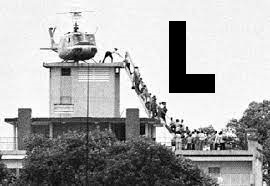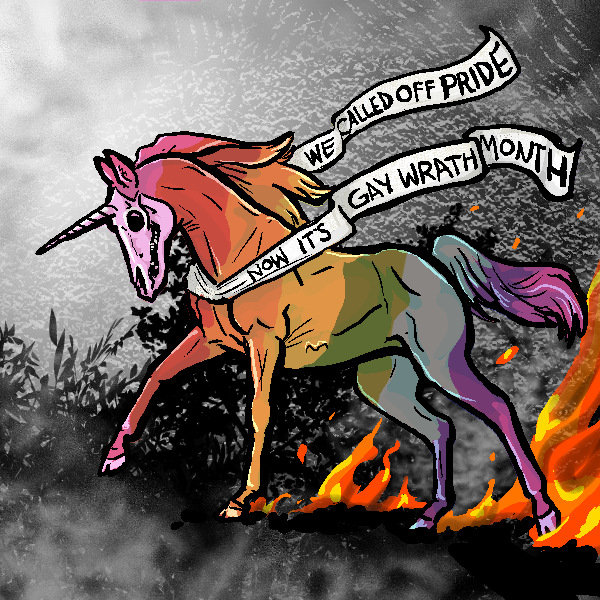Everyone outside the imperial core is subjected to the American/European outside observer, the least you can do is return the favor.
Maybe it'll stop some people from going "China bad this. China bad that" when they haven't read a single letter from someone who lives there.
Your voice is tiny. End of sentence. Irrespective of how many bodies you can bring to the street, you have zero power.
The author bid very aware of that. You are being allowed to struggle and the walls are closing in.
The first stage of American politics is taking “the right to express concerns” and equating it with “measures to resolve the problem.” I allowed you to express your opinion, so all is well.
The author doesn’t seem to be aware of the growing undercurrent of anti-American sentiment among the non-electoral left.
Your critique that we’re small is very fair—but ideas and movements start small, then spread, barring any other element repressing them.
The author seems to hint at the possibility of such an anti-American sentiment, a full disavowal, but doesn’t dip into the seedlings that have already sprouted. That seems less of an omission of insignificance, and more one of lack of knowledge.
I don’t blame the author for not knowing about us. We are not covered in the media, and we are weak. But we exist.
That the likes of us can forge an identity separate to the constitutions and laws of the imperial core is notable, and the emergence of that (and the failure of it to spread further) should be viewed through a systems lens.
Our identity seems to be one of leftists, workers, and people marginalised due to their gender identity or ethnicity. That’s a lot to examine for forging new identities, even if they haven’t yet become a national identity.
None of this is to detract from the core thesis—the author encapsulates the dominant identity and ideology of America. Rather, it would be interesting to see the author’s perspective on how those aforementioned marginal facets of the left form, and how they’re suppressed.
Thats just a fancy way of saying that discussing stuff isnt actually praxis. Bodys on the street IS power however. Literal power. Unless they are being led by libs, then it sucks.
Pfft. Bodies on the street that are not organized, disciplined and guided by revolutionary and proletarian or Marxist politics are just an ineffective liberal side show.
As soon as the property damage stopped and the demands articulated all the attention stopped.
100% agree. Like I said, unless they are led by libs. Peaceful protest generates token gestures satisfying the peaceful protest. Violence is the only means to archive meaningfull change. There was a nice post about this recently as well.
The first stage of American politics is taking “the right to express concerns” and equating it with “measures to resolve the problem.” I allowed you to express your opinion, so all is well.
The second stage of American politics is taking “the right to express concerns” and using it as legitimization for “tacit allowance of the bad.” I allowed you to express your opinion, and I even allowed a black president, so what are you babbling about?
The author is off on some other points but these are spot on. It's all aesthetic civility politics.
I summarized thirteen reasons for the U.S.’s weak response to the epidemic:
- Government system: the separation of powers between the federal, state, and local governments
Fucking THIS. I don't want to discount the other 12 reasons the author cites, but it drives me nuts that NO ONE in the media has ever brought this up over the last 4 months. Our insane obsession with states rights and doing things just because some rich slavers set things up that way ~250 years ago means we will not be able to handle this pandemic or ones in the future. Letting each state, county, and municipality make their own rules in a PANDEMIC means you're just gonna be playing whack-a-mole until a vaccine or cure is found. But got forbid we dare question the wisdom of the founding fathers in setting up this system.
Does anyone think that the decision to shut china down and enforce an all out lockdoen at 1000 deaths of a flu like virus in a billion people country would ever arise as majority supported horizontaly made decision among the population
Yes
The CIA does take advantage of the contradictions in the system in China. The liberalization of the Chinese economy did hurt Xinjiang initially which contributed to the Uighur separatism that happened. That way the CIA could get in terrorists, which lead to the problems in Xinjiang today.
As someone from a non-American Western Anglosphere nation, the analysis reflects many of our criticisms of the US left. (It also hits a little close to home in places.) Even in other Anglosphere settler-colonial states, the thought of "wiping the slate clean" in terms of political and cultural change is far more acceptable. (in fact, I'd say it's pretty acceptable in Europe to deny "race, blood, and land". Even in Liberal circles there's Pan-European cultural movements.)
That said, not doing much to assuage my fears of the over-dominance of Chinese Nationalism in current Chinese thought (I accept of course that Nationalism and the revival or culture had its critical place in the anti-colonial struggle.)
But that's not the point of the article, which is a much needed view, even if I quibble with a lot of it.
The nationalism is a good thing to be used right now especially with our complete COVID failure and the new cold war. However as China gets more powerful, it could be a problem. Still, it was interesting seeing a Chinese Communist perspective.
A caveat is that Chinese nationalism tends towards ethnonationalism centered around being Han Chinese. I think that’s where most of the problems arise.
Yeah. Qiao Collective has said that the CPC doesn't promote Han Chauvinism, but it needs to really be talked about it more in China itself.
I'm very well aware of that the as long as the west is shit, nationalism will be a response to it.
I'm also aware that Chinese nationalism is a response to western imperialism.
Western leftist are uncomfortable with nationalism because the nationalism we experience is far right.
I'm sure you've read Mao's comments on Han Chauvinism, so let's put to bed any suggestion that that's not a thing.
From that starting point, there's nothing crazy about acknowledging there's a tension between a national identity based upon the linguistic and cultural assimilation and respecting the inherent dignity of ethnic, linguistic, and cultural minorities (e.g. the 55 recognized minzu) within the territory.
Minority languages and traditions certainly have influenced the dominant culture; Mandarin and Chinese culture have changed with the times (hence all those cool words from Mongolian and Manchu). And the flexibility of Chinese culture allowed it to persist through, for example, Manchurian rule.
However, there is a tightrope to be walked here. In my post above I specifically was being critical of the tendency towards ethnonationalism. And unfortunately, I think in Party policy we can see those tendencies.
That only supports my point that it’s not a problem since any deviation is acknowledged from the very top.
I'm convinced.
Hate-crimes against Chinese people are spiking all over western regimes like Canada and people here think that Chinese nationalism is a problem instead of a perfectly understandable reaction to your brutal supremacism?
Take a look at this cool trick:
-Hate crimes against Chinese people... bad -Chinese nationalism... also bad
Crazy, right? We can fight against both at the same time! Let's try it again:
-U.S... bad -China... bad
-Jeff Bezos... bad -Jack Ma... bad
It's almost as if the problem was capitalism all along! And the solution is left internationalism! Rosa Luxemburg, for example, was both an ardent internationalist and one of the only people to support the anticolonial uprisings of her day. :thinking face: :thinking face: :thinking face:
Is nationalism in African countries bad? most communist nations embraced nationalism as resistance to imperialism.
Made me think of this
[African] nationalism was itself born, nurtured, encouraged and shaped by colonialism. Although Europe was "the home of nationalism" according to Macmillan, Africans were encouraged to think of it as genuine indigenous expression. Even though the African nations espousing it were born out of the 1884 Berlin Conference and African nationalist leaders were the products of colonial schools and European universities, African nationalism was still cast as the antidote to colonialism rather than an outgrowth of it.
Further, as described by the late Kenyan professor, Ali Mazrui, "African nationalism seeks to achieve and to maintain equality with Europe." Eurafrica gave African elites the opportunity to prance around the international stage pretending to be the equals of the colonial masters whose bidding they were doing.
Is nationalism in African countries bad?
Literally asking me to assess a wide-ranging ideology across an entire continent, lol.
If you're asking if I unequivocally support all nationalism in every colonized country, the answer is fuck no. Do I support some left-wing nationalist movements? Hell yes. Do I critically support others? Yes. Are there some were I think nationalism is the wrong answer? Definitely. And that includes China, one of the largest and most powerful countries in the world, where nationalism may have served a purpose in the past, but in my view no longer does. My view on the matter is nicely captured in Rosa Luxemburg's writing on the Polish Question, if you have any further questions.
You're right that my viewpoint is more nuanced than yours--I suspect that I am substantially older than you and (no offense), more deeply read on most of the subjects we have discussed tonight. Perhaps I am wrong, but that's my impression from your breathless approach to posting and the many tweets you use as citations.
Nonetheless, it's good to see your enthusiasm! Building solidarity in person is hard work, and it's good to get the ranting and insults out of the way online before you start attempting real-world praxis.
I'm not sure it's a good thing, it may well be a needed thing, and no one can blame them for embracing it after a century of western chauvinism in culture.
But the cost is going to be pretty heavy when it comes due and I hope those ideologically committed comrades in the CCP are ready to deal with it when the time comes to support a more internationalist perspective and a hopefully leading role for China in the building of an international Socialist world..
Qiao Collective is an invaluable resource for Western/American leftists. Having a radically different leftist perspective is something we need to all strive for in our discourse. I highly recommend following them on twitter.
t4p. ive been trying to yell to friends about how blaming trump is an insufficient criticism of america's covid problem and he finally put my feelings into words that sound smart.
in a vacuum blaming him is fine, but oftentimes blaming him is a way people can intentionally ignore making any substantial criticism of american "democracy" and our political system. it also implies that under a democrat things would have been fine (they would have been less bad.... maybe, but not good)
the level of discourse is to high for libs to comprehend when the editor's note is longer than most news articles nowadays
Can you imagine an American commentator, writing such in an in-depth analysis, let alone having 1.6 million Twitter followers?
As we say in the Middle East: " Americans are not an intellectual people. "
Interesting from a journalistic perspective, but the dismissal of "political and civil rights" is bad and dangerous. Obviously having the rights is not itself sufficient--we need to do something with them--but that space is necessary for any popular movement to grow. Necessary but not sufficient.
Also, the author does something many Chinese commentators do, which is explain America as individualistic and weak because it lacks "common purpose" or "communal values" or any number of other euphemisms. These takes invariably remind me of mid-century fascist critique of the U.S.--that we are a state without a "volk." That's essentially what the author is complaining about when he says the U.S. doesn't function because "ethnicity, blood, land, language, culture, and history are not key factors" in its national identity. That argument is not a left critique, and should be offensive to anyone with an internationalist left ideology.
That’s essentially what the author is complaining about when he says the U.S. doesn’t function because “ethnicity, blood, land, language, culture, and history are not key factors” in its national identity.
Why to willfully misinterpret what the author is saying there. This is not a complaint but an observation plainly stated. It's to draw a contrast between his assertion that US identity is based on "political values" instead of "ethnicity, blood, land, language, culture, and history are not key factors" because it's a nation of immigrants. You can disagree with him on the claim but you can't say he is saying that that stuff has to exist because he never says that.
The section is headed "Why Can’t America Criticize Its Own System?", with the clear argument that the centrality of political values to the system (as opposed to China's "national identity based more on culture and language") makes our system of government less effective and unable to respond to crises like COVID-19. That's a bad take. I believe you don't need a national identity based on a specific culture and language to create a successful political system capable of systemic self-critique. You're welcome to disagree, of course, but I encourage you to keep your eyes open against the influence of nationalism in any left movement--Chinese, American, or otherwise.
I don't think America's identify is centrally based on political value alone but that's a point I'm not interested in discussing.
I'm objecting to you quoting the author and misscharacterizing his arguments based on the out of context quotes. The author is writing for a Chinese audience and it's natural he would emphasis the Chinese situation. It's also undeniable that the American discourse never entertains a systemic critique and takes the American and by extension the post-WWII Western system of governance a priori as infallible. It's well within reason to want to interrogate why that is.
I don't believe I"m mischaracterizing his arguments, but agree to disagree.
I guess in general I just wonder at the value of this kind of discourse. American media does China dirty all the time, making gross generalizations about a country of a billion plus people. The proper response to that is not to, in turn, make gross generalizations about a country of 300+ million (i.e. "American discourse never entertains a systemic critique and takes the American and by extension the post-WWII Western system of governance ipso facto as infallible"). Instead U.S. and Chinese leftists should be writing about each other's work, learning from each other's struggles and supporting each other's efforts. Dismissing BLM in the way this author does is not constructive to an international left project.
tfw Sanders is the entire American left
I dunno, this kind of nihilism about the Western left may work for people who don't live in the West, but it's not politically useful for those of us who do. Ostensible "leftists" from other countries like the author of the article should be seeking to make connections with the people who are actually engaged in anti-imperialist struggle, not strawmaning Sanders as the leftward limit of American politics. The American left is weak, but it hasn't always been, and it won't always be. In my part of the U.S., being a Sanders stan is centrist. That's my point--generalization bad, amplifying the voices of comrades good.
Fair enough. It's just I think Tu Zhuxi is 100% right when he says no current American will ever advocate for burning the constitution and anything less isn't enough.
Lol, I'm a current American, I'm here, I'm advocating for it! I know a few hundred other people in my local org who agree! More to the point, the American left has been advocating for it for centuries. You won't get it from Hollywood movies (though Reds is fun), but there's a long history from August Willich through Emma Goldman, Fred Hampton, London Meyer, the Lincoln Brigade, etc. etc. who all fought to get rid of the constitution in it's current form. Hell, abolishing the senate was a mainstream position from the failure of the postwar anti-lynching bills until well until the 70s. Rep. Dingell, the longest-serving congressperson in history and no leftist by any standard, called for scrapping much of the constitution in his retirement speech just a few years ago. These things are up for debate, comrade, and if those voices aren't appropriately amplified by the mainstream American media, they should certainly be amplified by a Chinese "leftist" writing about America.
Really interesting, thanks for sharing. Would like to read their other work but it’s all in Chinese :P
I thought it was good and as a 3rd worlder I found it interesting that our analysis doesn't differ that much, I would just posit there is a second point of pressure, and am sure with his keen observation he'll figure it out too. Good stuff. Thank you.






